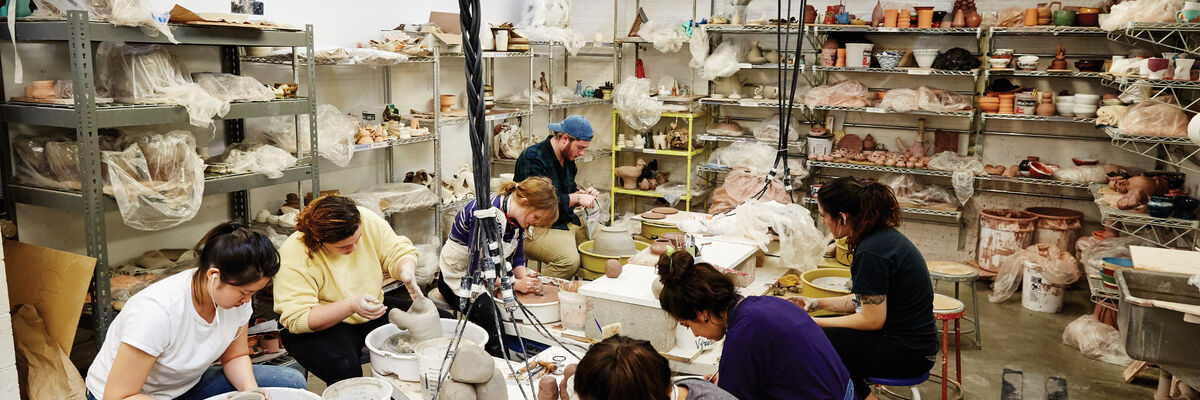
An Interview with Kazuki Guzmán
Kazuki Guzmán is an MFA student in Designed Objects and is also the Manager of the Sullivan Fabrication Studio.
As part of the 2020 Whatnot Studio, he had the opportunity to participate in the French-American Online Design Schools Workshop produced by Wanted Design which focused on the COVID-19 public health crisis. Kazuki spoke with Pete Oyler, Assistant Professor in Designed Objects, about his experience collaborating and developing the “Listen: Let’s Talk!” app. You can see more of Kazuki’s work online at https://www.kazukiguzman.com/.
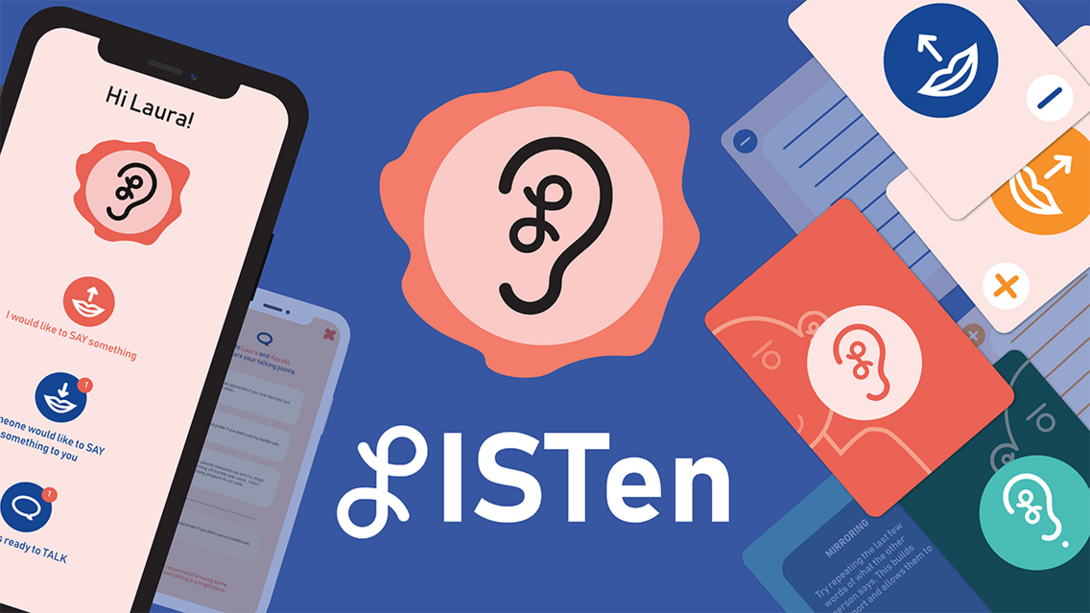
You co-designed the “Listen: Let’s Talk!” app alongside Laura Jaramillo from the Rhode Island School of Design and Naïs Hoang from the École Estienne. Your group’s project was awarded second place by the jury (congrats!) and focused on the role of communication in strengthening relationships in the context of quarantine. Can you talk about how the design of “Listen: Let’s Talk!” facilitates conversation?
Through our research on confinement’s effect on people’s mental health, we learned–among other things–that there has been a global surge in divorce rates and roommate strife since the beginning of the quarantine. Communication is important to sustaining interpersonal relationships and by focusing on how to improve communication, we could help potentially help mitigate everyday conflicts, and maybe even flatten the curve on Corona break-ups.
Listen is an app and a card game that does the groundwork of setting up a successful, open conversation by integrating mediator tactics into the structure of the system. The logic of the app/game ensures that boundaries are respected and that both parties are truly ready to talk when a conversation starts. Listen guides users through creating a list of talking points that are mutually reviewed and agreed upon. With added features like communication techniques, and the rule of having to submit a positive point with every negative, Listen subconsciously and consciously teaches users how to be better and more empathetic communicators. Also, in order to eliminate the stigma surrounding therapy and make the project more easily accessible, we used colorful yet calming color palettes for the app, and combined it with friendly illustrations.
I know this was a really fast-pace workshop—the entire project took place over just 72 hours! What was this experience like? How did your group navigate the challenges of developing a project in such a short amount of time?
It was more like 48 hours or less really, since the first day was reserved for introductory slide shows and the last day was already the day of the final presentation. With a really tight deadline like that, we had to make every decision very quickly. And once we made a decision, we never looked back and gave full support to develop that one idea further. It was never really about the ownership of an idea as we all shared the same challenge and a goal, how can we make this dire situation better. We used every communication method available starting with texts to Whatsapp, Slack, email, phone calls, instagram, Zoom, Google Drive and so on. We all lived in different time zones but that didn’t seem to affect as much since none of us really slept during those 2~3 days.
Our group did a really good job identifying individual’s strengths and each one of us contributed to the projects in different ways. We would work alone for an hour or two, and then check in to share the progress and new findings. It was a really good balance between working together intensively, then going your own ways, and meeting again.
Do you have plans to continue to develop the project?
We have actually been continuing to work on the project everyday with hopes to make it available for the general public. We have added more communication techniques used by the therapists, refined our graphics, and now we are in the process of setting up a website and looking for a developer to develop the app. It is important to us that the app is available for everyone free of use with no ads. We will be launching a Kickstarter campaign very soon to generate necessary funds to realize this. Please stay tuned!
What was the most valuable aspect of this experience?
The most valuable aspect of the workshop was meeting my amazing teammates and working in a capacity I never would have considered alone. My practice generally revolves around traditional crafts and making objects. Never thought I would be designing an app to help strengthen relationships, and definitely not in three days. I believe, subconsciously, we wanted to take this matter to our hands and take some sort of actions ourselves, instead of designing something to be made by someone, sometimes. And that may be a possible reason why we are still so eager to keep working on this project, to take responsibility, as designers, for the project that we started to make the world a better place. I also learned that we can't just be creative anymore, we have to be flexible and adaptive as well. The workshop gave me an insight on how to navigate the "new normal" that's around the corner.
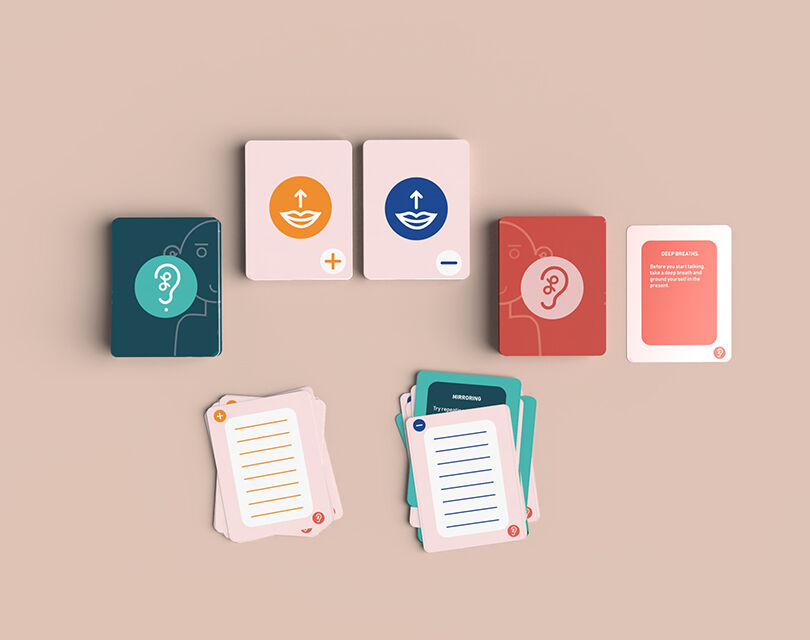

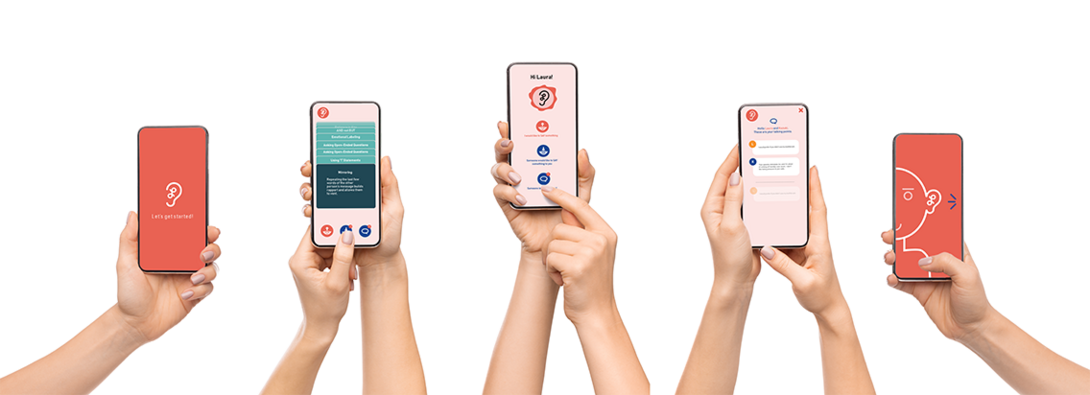
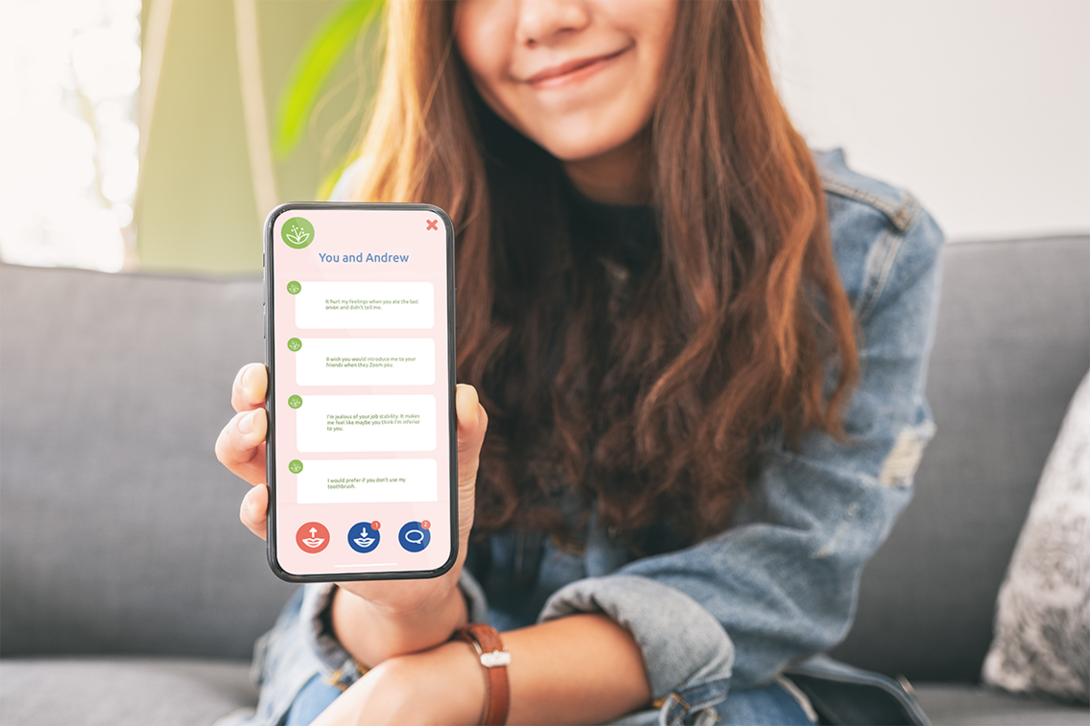
Learn more:
French-American Online Design Schools Workshop Page
Project Instagram: @listen.letstalk
Kazuki's Instagram: @kazukiguzman
